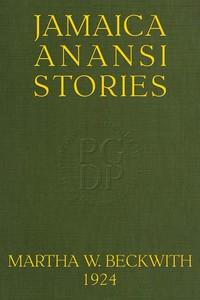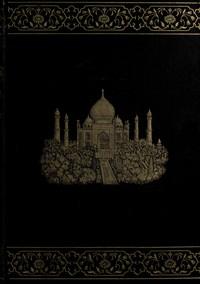Read this ebook for free! No credit card needed, absolutely nothing to pay.
Words: 132334 in 70 pages
This is an ebook sharing website. You can read the uploaded ebooks for free here. No credit cards needed, nothing to pay. If you want to own a digital copy of the ebook, or want to read offline with your favorite ebook-reader, then you can choose to buy and download the ebook.


: Jamaica Anansi stories by Beckwith Martha Warren Roberts Helen H Helen Heffron Contributor - Folklore Jamaica; Creole dialects English
PAGE Contents v Preface xi
ANIMAL STORIES.
OLD STORIES, CHIEFLY OF SORCERY.
MODERN EUROPEAN STORIES.
SONG AND DANCE.
Witticisms 179 Riddles 183 Index to Riddles 219 Abbreviations of Titles 223 Notes to the Tales 233 Index to Informants 291
PREFACE
The stories in this collection were taken down from the lips of over sixty negro story-tellers in the remote country districts of Jamaica during two visits to the island, one of six weeks in the summer of 1919, the other of five weeks in the winter of 1921. The music was all recorded during the second visit by Miss Helen Roberts, either directly from the story-teller or from a phonographic record which I had made. In this way the original style of the story-telling, which in some instances mingles story, song and dance, is as nearly as possible preserved, although much is necessarily lost in the slow process of dictation. The lively and dramatic action, the change in voice, even the rapid and elliptical vernacular, can not appear on the printed page. But the stories are set down without polish or adornment, as nearly as possible as they were told to me, and hence represent, so far as they go, a true folk art.
Although some story-tellers claimed to know "more than a hundred" stories, no one narrator gave me more than thirty, and usually not more than four or five at one interview.
To all such story-telling, as to riddling and song, the name of "Anansi story" is applied,--an appellation at least as old as 1816, when Monk Lewis in his journal describes the classes of "Nancy stories" popular in his day among the negroes as the tragical witch story and the farcical "neger-trick." The "neger-trick" harks back to slave times and is rarely heard to-day; tales of sorcery, too, are heard best from the lips of older narrators. Modern European fairy tales and animal stories have taken their place. Two influences have dominated story-telling in Jamaica, the first an absorbing interest in the magical effect of song which, at least in the old witch tales, far surpasses that in the action of the story; the second, the conception of the spider Anansi as the trickster hero among a group of animal figures. Anansi is the culture hero of the Gold Coast,--a kind of god--, just as Turtle is of the Slave coast and Hare of the Bantu people. "Anansi stories" regularly form the entertainment during wake-nights, and it is difficult not to believe that the vividness with which these animal actors take part in the story springs from the idea that they really represent the dead in the underworld whose spirits have the power, according to the native belief, of taking animal form. The head-man on a Westmoreland cattle-pen even assured me that Anansi, once a man, was now leader of the dead in this land of shades. However this may be, the development of Jamaican obeah or witchcraft has been along the same two lines of interest. Magic songs are used in communicating with the dead, and the obeah-man who sets a ghost upon an enemy often sends it in the form of some animal; hence there are animals which must be carefully handled lest they be something other than they appear.
Riddling is a favorite pastime of the Jamaica negro. Much is preserved from old African originals in the personification of common objects of yard and road-side, much is borrowed also from old English folk riddling. That this spread has been along the line of a common language is proved by the fact that only a dozen parallels occur in Mason's Spanish collection from Porto Rico, at least ten of which are quoted by Espinosa from New Mexico, while of collections from English-speaking neighbors, fourteen out of fifty-five riddles collected in South Carolina and nine out of twenty-one from Andros Island are found also in Jamaica. Particular patterns are set for Jamaica riddling into which the phrasing falls with a rhythmical swing careless of rhyme,--"My father has in his yard" and "Going up to town." The giving of a riddle is regularly preceded by a formula drawn from old English sources--
Riddle me this, riddle me that, Perhaps you can guess this riddle And perhaps not!
Free books android app tbrJar TBR JAR Read Free books online gutenberg
More posts by @FreeBooks









